


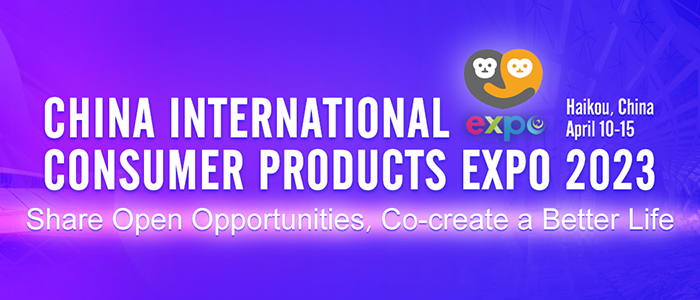
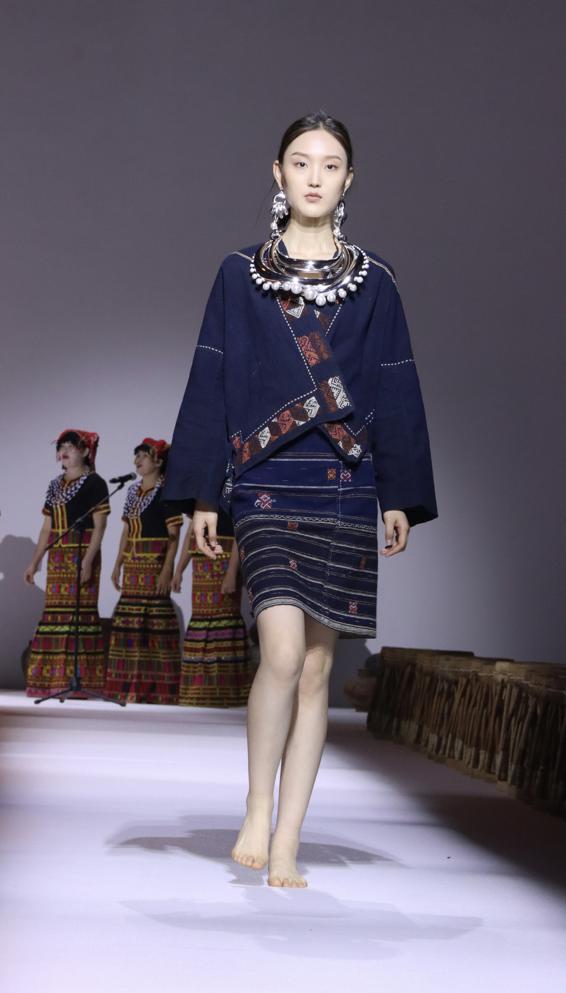
An event themed "Longing for Changjiang: Encounter a glimmer of light" was held in Haikou, Hainan province, on Saturday — the closing show of the third China International Consumer Products Expo Fashion Week.
The event featureed intangible cultural elements, such as Li brocade, Li pottery and the beautiful natural scenery of Changjiang Li autonomous county.
By combining the traditional culture of Changjiang's Li ethinic minority and fashion trends, the show gave a nod to Li girls and launched the butterfly Li brocade series of fashion clothing, showcasing China's emerging influence in fashion design.
"Through this fashion show we hope to attract the culture and tourism industry and design companies to support Li brocade, helping this ancient skill to enter the international market faster," said Wang Changjiang, deputy head of the county.
Changjiang will focus on combining intangible cultural heritage with tourism, promoting the research and development of intangible cultural heritage products and encouraging Li brocade clothing enterprises in the county to design more life-oriented and international products, he said.
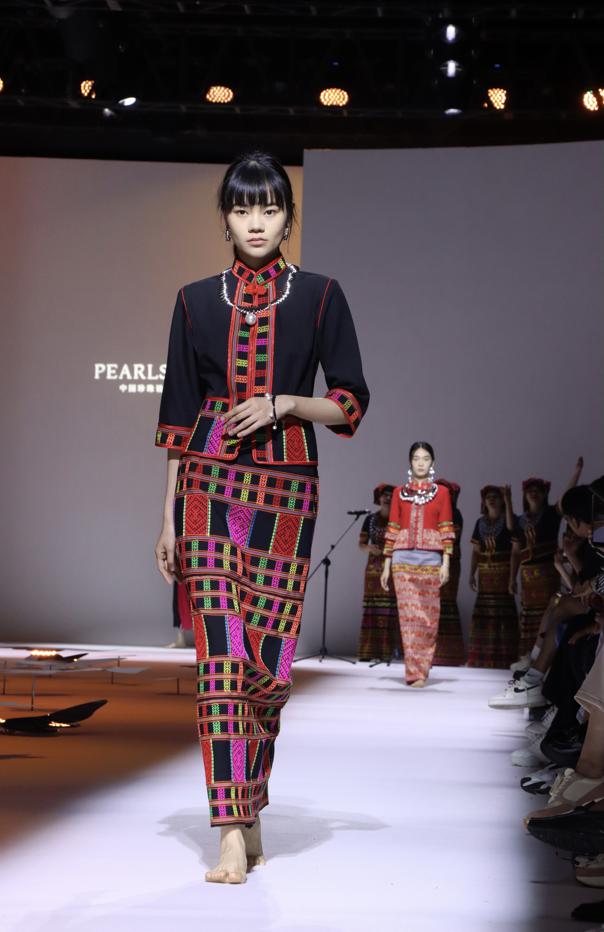
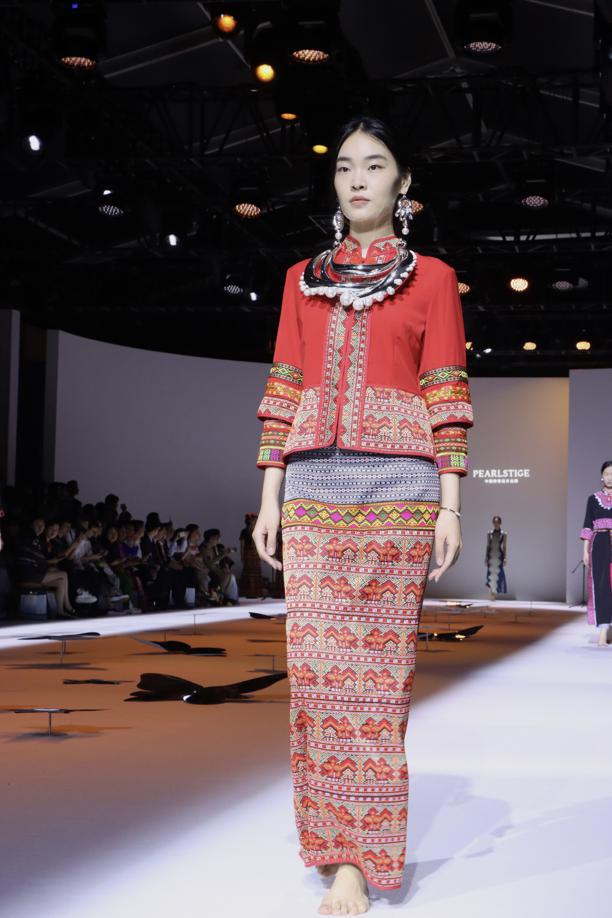
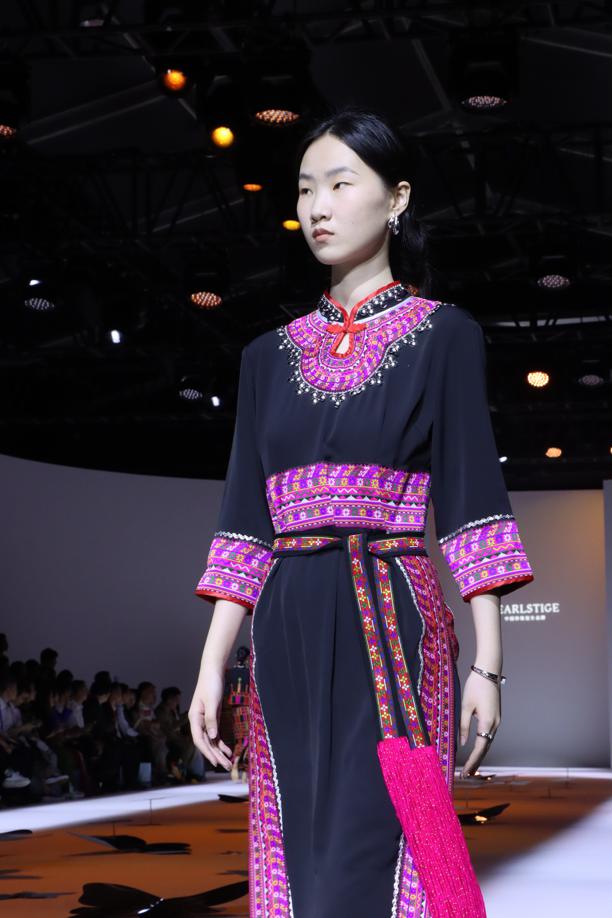

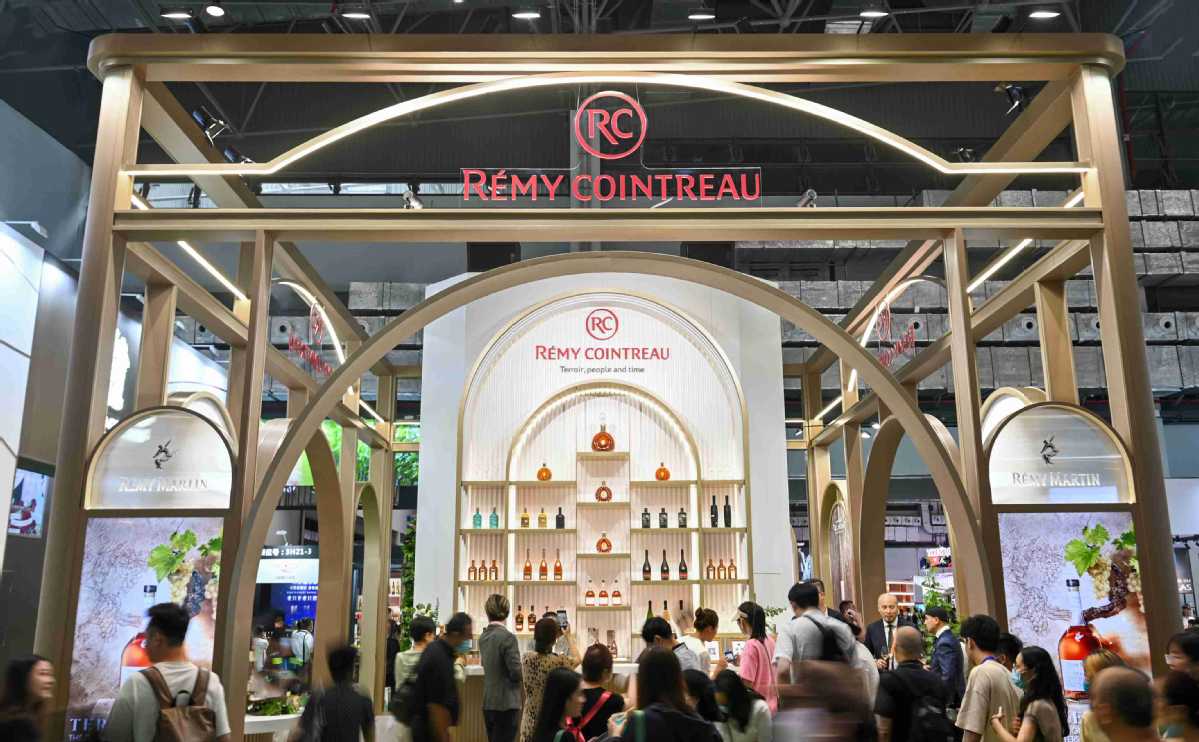
Driven by China's offshore duty-free shopping policies in the Hainan Free Trade Port, and soaring demand for premium and diversified alcohol products, Remy Cointreau Group, the French spirits company, will introduce more products and expand its sales in duty-free channels in the country's lucrative market, said a senior executive.
With growing middle-income earners and their increasingly discerning tastes, China's rising consumption of spirits like cognac and whiskey will push multinational corporations like Remy Cointreau to invest more in this market to meet local demand, said Sophie Phe, CEO of Remy Cointreau China.
Speaking during the third China International Consumer Products Expo held in Haikou, Hainan province, last week, Phe said Remy Cointreau, a three-time CICPE participant, showcased a range of products, including champagne, Scotch whisky, gin and cognac, at the grand event.
To meet domestic consumers' demand for single malt whisky, the company recently released two new single malts - Octomore 13.1 and Black Art 10.1 - from its distillery in the island of Islay, Scotland, in the Chinese market.
The executive said that China's influential international exhibitions, such as the CICPE and the China International Import Expo, are key platforms for foreign companies like Remy Cointreau to further promote sales and brand awareness.
"They represent a fantastic opportunity to showcase our products and share our core values with consumers, as well as demonstrate our long term commitment to the Chinese market," said Phe, adding the CICPE and the Hainan Free Trade Port will play a vital role in the global travel retail sector, serving as a window into China as they contribute to its dual-circulation development paradigm.
Under the dual-circulation model, the domestic market is the mainstay while the domestic and foreign markets reinforce each other.
"With the future investments in Hainan, we believe this market will continue to grow and drive more clients," she said. "Therefore, Remy Cointreau will continue to expand its retail footprint in the tropical island province."
In addition to opening two boutique stores in Haikou in 2021 and this year, respectively, the company has invested in areas such as premium services, including exclusive high-end dinners with clients and customized gifting ritual, as well as online sales channels and sustainable development to remain robust growth in China.
Propelled by an increasingly urbanized Chinese population and their evolving tastes, China is currently counted among many global food and beverage companies' main markets in terms of revenue, said Guo Xin, a marketing professor at Beijing Technology and Business University.
"The country's policy packages to stimulate consumption, holiday periods and online shopping festivals, as well as the stay-at-home economy, have all created growth momentum," Guo said.
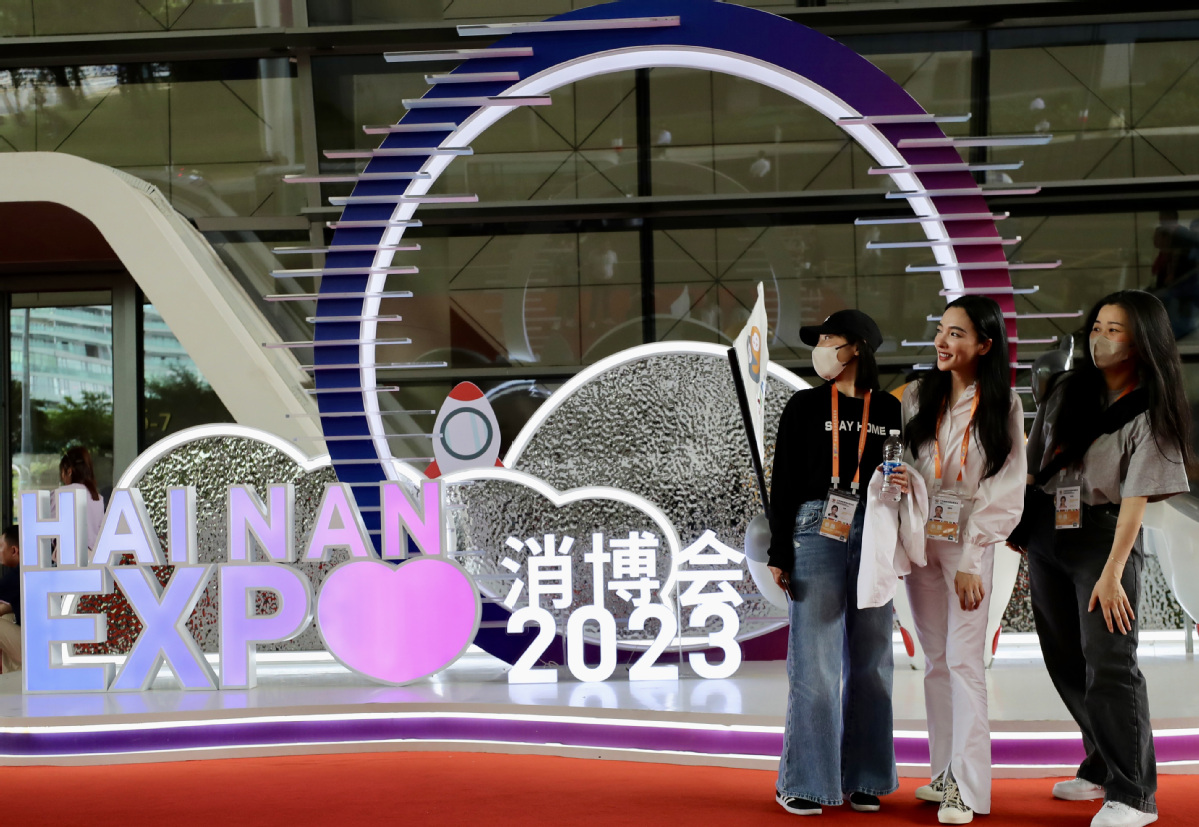
HAIKOU -- The third China International Consumer Products Expo (CICPE), which concluded on Saturday in Haikou, saw a record number of visits, said the organizer.
Over 320,000 visits were made during the six-day expo, compared with 280,000 registered last year.
The expo hosted more than 3,382 brands from 65 countries and regions, while over 2,000 overseas purchasers from 35 countries and regions came and sought business opportunities.
Yacht exhibits and fashion shows also took place during the expo.
Themed "Share Open Opportunities, Co-Create a Better Life," the third CICPE was the first large-scale offline international expo after China optimized its COVID-19 response.
Offshore duty-free shopping in Hainan province has become key to boosting consumption upgrade in China, with the duty-free sector playing a significant role in supporting the backflow of international spending into Hainan.
Domestic retailer Wangfujing Group just opened its Wangfujing International Duty-free Port in Wanning, Hainan in early April.
"China's market is also in the recovery stage, so expanding and promoting consumption has become a main priority,” said Du Tao, General Manager of Wangfujing Group.
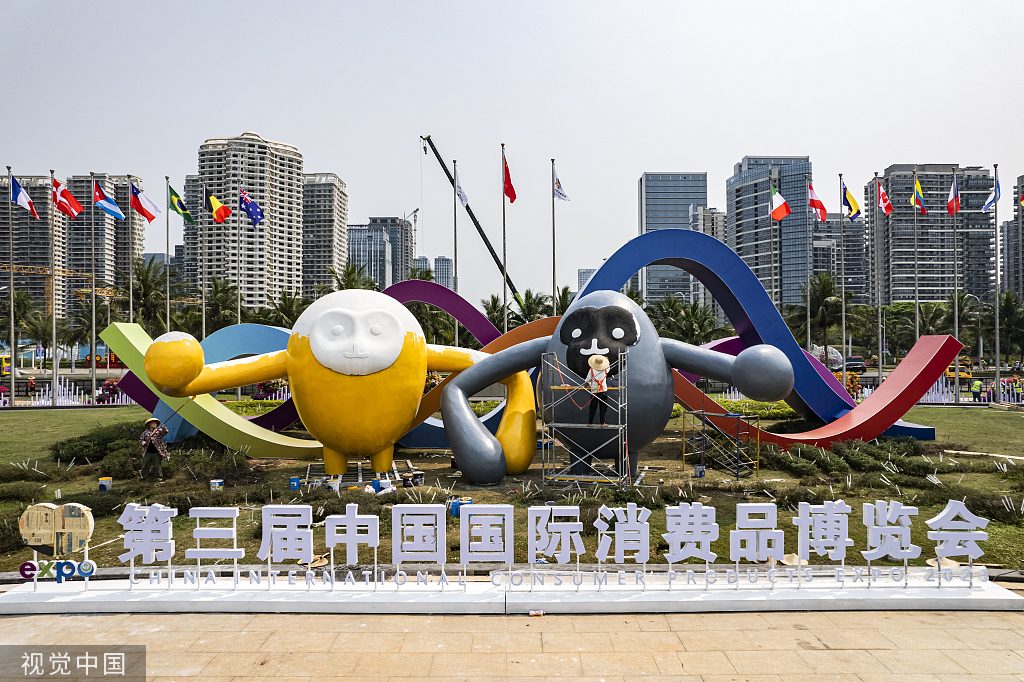
ISTANBUL - The third China International Consumer Products Expo (CICPE) provides excellent opportunities for global companies to explore the Chinese market, a Turkish business person said.
"There has been a tremendous demand for the expo. The interest is beyond our expectations," Coskun Simsek, head of the China Trade Center in Istanbul, told Xinhua in a recent interview.
For global manufacturers, entrepreneurs and investors who desire to integrate into this market, the expo is full of opportunities, said Simsek, who has been offering consultancy services to Turkish firms on investment in China and helping boost trade between the two countries.
The third CICPE kicked off Monday in southern China's island province of Hainan, displaying more than 3,300 brands from 65 countries and regions under the theme of "Share Open Opportunities, Co-create a Better Life." It has an exhibition area of 120,000 square meters, up 20 percent from the previous edition.
"Frankly, we shouldn't be surprised by this high demand," Simsek said. "Such interest in the Chinese market is inevitable for the companies to plan to boost their trade relations," especially since the optimization of China's COVID response, he said.
The expo also serves as a solid platform for all sides to enhance business "without wasting more time and exerting much effort," Simsek noted. "Businesses in different countries who need to reach some specific products found the opportunity to compare various products under the same roof and contact the manufacturers directly," he said.
"Otherwise, they have to travel to China, going from one city to another, which would take months." Meanwhile, the event is important for further deepening trade relations between Türkiye and China, Simsek said.
"Türkiye and China have been in solid collaboration for a long time. Their partnership has become a win-win business model for Turkish and Chinese companies.
This expo is essential for the two countries' companies," he said, noting that more Turkish companies have started to purchase Chinese-made semifinished products and raw materials, apart from end products. "Wherever you go in the world, no matter what products you look at, you see made-in-China labels on 90 percent of the products you will see in the global market," he said.
"This is the biggest indicator of China being a great supplier worldwide. China is now at the center of a supply chain that can suffice the whole world. And this makes China indispensable for many countries," he added.
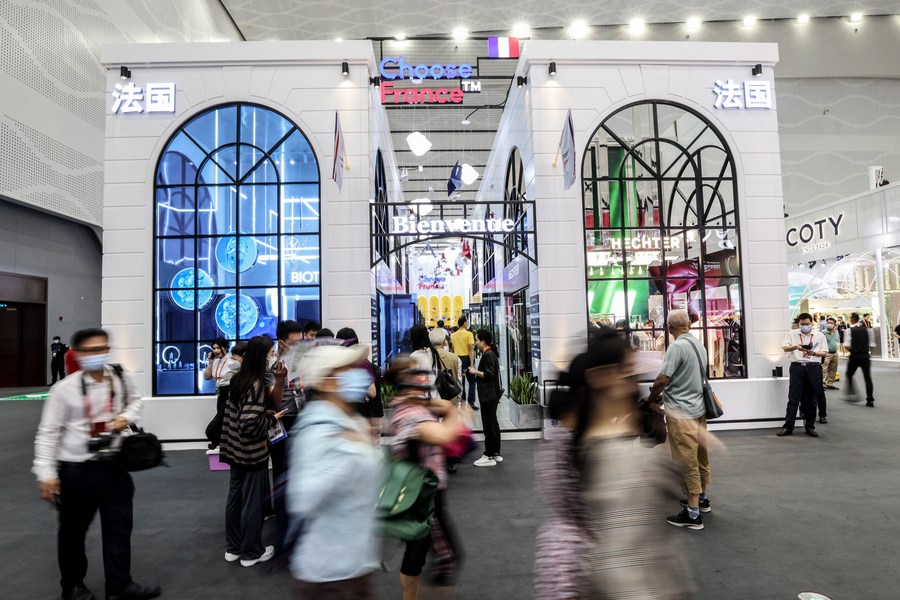
BEIJING -- For Stefania Lazzaroni, general manager of Italy's luxury brands committee Altagamma, the third Hainan expo presents "an amazing opportunity, and we really want to have the occasion to illustrate and tell the story of the amazing beauty of our brands."
As part of China's campaign to bolster consumption, the event, officially known as the China International Consumer Products Expo, held from Monday to Saturday in Haikou in South China's Hainan province, has attracted over 3,100 brands from 65 countries and regions.
Numerous exhibitors aspire to opportunities brought by the expo, not merely to capture a greater share in the Chinese market, but also to catalyze their own product innovation and gain more steam for their recovery from the repercussions of the COVID-19 pandemic and other uncertainties.
Business opportunities
"When Altagamma invited us, we immediately said yes," said Violante Avogadro, chief communications officer of Illycaffe, a well-known Italian coffee producer. "We really want the Chinese people to discover the brand and appreciate it ... The expo is a perfect place for us."
Apart from Illy, 147 brands from Italy -- the guest country of honor at this year's expo, such as high-end fashion house Gucci and luxury vehicle manufacturer Lamborghini, are participating in the event.
"The Chinese market is really relevant," Lazzaroni said. "It's tremendously important for our brands to develop an even stronger relationship with China. It's always been the case."
From January to February, China's retail sales of consumer goods climbed 3.5 percent year on year, official data showed, indicating a rapid rebound in consumer expectations and steady resumption of off-line services.
Given the rosy prospects of China's consumer market and its commitment to higher-level opening-up, multinationals from across the globe are racing to expand their business in China through the fair.
The 2023 version saw the participation of a Polish delegation for the very first time. In the eyes of Jacek Boczek, vice president of the Polish Chinese Business Council, the Polish business community ought to intensify its endeavors to leverage the vast opportunities and potential present in the Chinese market.
"We should export to China much, much more, because we have many products of a very good quality," he said.
Since China in 2020 released a plan to build Hainan into a globally influential and high-level free trade port, a portfolio of favorable policies has been implemented in the island province, including zero tariffs and easing market and foreign investment access.
A total of 52 companies that had participated in the previous expos became investors in the Hainan Free Trade Port, said Tulenov Ruslan, a global media officer of the Hainan Provincial Bureau of International Economic Development.
Tapestry, Inc, a New York-based company in possession of such famous brands as Coach, Kate Spade and Stuart Weitzman, decided to base its China travel retail headquarters in Haikou in 2022 after participating in the first CICPE. Thus far it has opened nine duty-free stores and four retail stores in Hainan.
"The expo is an important window for global high-end brands to accelerate their entry into and expansion in the Chinese market. It has also created new opportunities to boost the development of the global market," said Charlie Hou, senior director of travel retail at Tapestry (Hainan) Group Co Ltd.
Innovation catalyst
In the past four decades or so, the Chinese consumer market has undergone a substantial change from focusing on simple and basic goods in the 1970s, and then becoming exposed to world fashion in the 1990s, to setting trends for global fashion and style today, Stephen Perry, chair of the 48 Group Club, observed.
Indeed, China has emerged as a trendsetter in industry and product development, as seen in the Hainan expo where more than 1,000 products from more than 300 brands are expected to make their debut.
Among the exhibitors that have taken part for three consecutive years is US beauty titan Estee Lauder, which inaugurated its China travel retail headquarters in Hainan in January 2023 right after unveiling its China Innovation Labs in Shanghai in December 2022. The labs will be the largest cutting-edge technology research center in Estee Lauder's international market by 2025 as planned.
Fabrizio Freda, CEO of Estee Lauder, said that his group, with high confidence in the Chinese market and an awareness of the importance of Hainan's offshore duty-free market, is looking forward to establishing higher quality cooperation in duty-free shopping, medical care, and talent training, and to introducing new and quality products to more consumers.
The 2023 CICPE highlights such hot topics as green development, healthy consumption, smart life, and new fashion, which are equally the main directions for the exhibitors to foster their product innovation.
On the sidelines of the event, Alfred Xu, CEO of Rhea Vendors Group China, told Xinhua that the Chinese consumer market is shifting towards higher quality, smarter, and more environmentally friendly products, a change that is driving technology and product innovation around the world. Rhea Vendors from Italy is a world-leading producer of customized vending machines.
To meet the demand of Chinese consumers who are embracing a paperless life, Rhea's coffee vending machine products have adopted e-payment options such as UnionPay, digital RMB, Alipay, and WeChat Pay. This allows for quick and easy scan-to-pay transactions, resulting in a more intelligent and convenient experience for consumers, Xu said.
"The requirements of the Chinese market are developing," thereby opening the door to innovation and technology development, not only in China but also beyond its borders, since "everyone realizes that China welcomes any partner working with it inside or outside the Chinese market," Abu Bakr al-Deeb, advisor to the Cairo-based Arab Center for Research and Studies, told Xinhua.
Recovery momentum
During the ongoing expo, several international advisory institutions, including Boston Consulting Group, Deloitte and PwC, issued reports detailing their optimism about the recovery prospects of Chinese consumption.
In its report, Deloitte noted the pace of recovery in China's consumer market is accelerating, and growing household incomes will continue powering its growth.
From the perspective of the Chinese economy as a whole, its sound recovery is expected to renew impetus for global economic growth. Both the World Bank and the International Monetary Fund have revised their projections for China's economic growth in 2023 to above 5 percent.
In light of the size of the Chinese economy, that would be a key contributor to global growth in the coming year, said Pierre-Olivier Gourinchas, director of the Research Department of the IMF.
Therefore, analysts construe the Hainan expo -- the first large-scale international expo held after China optimized its pandemic response -- as part of the country's endeavor to help advance global growth and revive international trade.
"The increase in China's domestic demand is a favorable scenario for the world's economies, including Argentina's," Fernando Fazzolari, an Argentine economist and businessman, said, adding the expo "is very important because we have been through some difficult years in terms of international trade due to the aftermath of the pandemic."
Wilson Lee Flores, a columnist for The Philippine Star, said the event is "very welcome news for the economic activity and economic growth of China and the whole Asia region," which "will promote the vitality and dynamic of the economy of China and Asian countries."
"This will help both consumers and different companies in the world because China is the second largest economy in the world. It has a positive impact on Asian economic growth and on the world economic outlook," he added.
The third China International Consumer Products Expo is ongoing in Haikou of Hainan province, with participators confident in Chinese consumption and wanting to obtain more opportunities in China.
Foreign visitors were dazzled by exhibits from home and abroad at a consumer products expo which is being held in Haikou, South China's Hainan province.
The third China International Consumer Products Expo runs until Saturday. Exhibitors representing over 3,300 brands from 65 countries and regions attended the fair.
Toby Symonds, a British writer and vlogger who is on the "A Date with China" international media tour, said the expo is a great opportunity to share all wonderful brands not just from China, but across the world.
Ameen Muneer Mohammed, a journalist from China Arab TV, said the expo is a bridge to help foreign enterprises enter Hainan and the vast Chinese market.
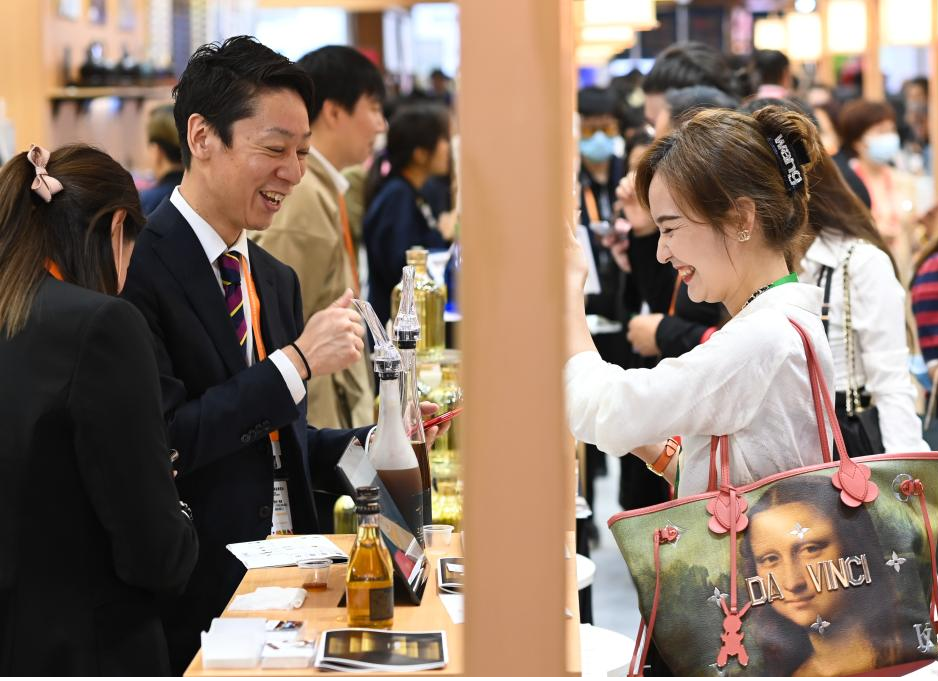
HAIKOU -- For enterprises globally, China's consumer products expo has provided a springboard to enter this unmissable market, giving a much-needed boost to COVID-dented global business confidence.
As a first-time exhibitor at the China International Consumer Products Expo, Masashi Nanase, assistant manager of Japanese company Fujiya Corporation, was excited to see exhibition booths dotted with visitors.
The continuous influx of visitors shows the vitality of the Chinese economy, he said.
Held in the resort island of Hainan province, the third CICPE has attracted over 3,300 brands from 65 countries and regions. In the first two days of the expo, the seaside exhibition center has already reported over 90,000 visits.
Hoping to expand their business to the Chinese mainland, Nanase's company intends to leverage the CICPE as a platform to promote products. "I believe our company will have massive development in China," the manager said.
Stephan Mecha, head of Group Sales of Volkswagen Group China, said that the CICPE is a platform for expanding trade, strengthening cooperation, and promoting development among countries.
During the 2013-21 period, China has remained the biggest contributor to global economic growth, with consumption assuming a bigger role in shoring up its economic growth.
Official data showed that final consumption contributed 65.4 percent to the country's headline GDP expansion in 2021, surpassing investment and export to become the biggest growth contributor.
Consumption has also been highlighted by China's policymakers in multiple key documents and meetings. In this year's annual government work report, for instance, the country has reaffirmed its determination to prioritize the recovery and expansion of consumption.
With massive opportunities and supportive policies, the world's second-largest consumer market holds irresistible appeal to global businesses. And the CICPE, the first state-level expo on boutique consumer products, becomes all the more prominent.
The expo is a superb opportunity to showcase the brand to Chinese customers and bring closer the ties between the company and the Chinese market, said Josie Zhang, president of Burberry China.
The Hainan expo, as the first large-scale international expo after China optimized its COVID response, has also offered a shot in the arm for COVID-distressed enterprises.
"After three years of development, the expo is well positioned to play a more prominent role in boosting consumer confidence, unleashing consumption potential, and connecting global consumer goods with the Chinese market," Zhang added.
Commercial Consul of the French Consulate General in Shanghai, Xavier Chatte-Ruols, also in charge of the French pavilion at the expo, stressed the importance for enterprises to meet consumer demand and the confidence of French companies in Hainan and China.
Many customers were interested in the brand and came to buy directly, noted Nicolas Gros, general manager of French brand Montagut, saying that he was "quite impressed."
"I think I will return in future," he said.
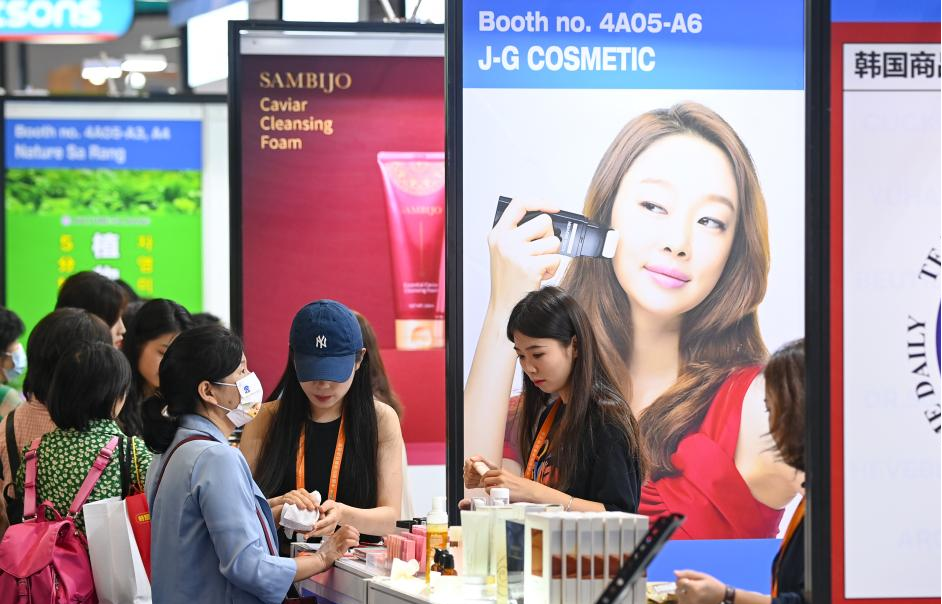
With the entry into the post-pandemic era and the roll-out of measures meant to boost consumption across the country, China's consumer market has recovered steadily, with the building of differentiated consumption scenarios and innovation of forward-looking products emerging as new engines of growth, according to two reports unveiled at the Global Consumption Forum of the ongoing third China International Consumer Products Expo in Hainan province.
Brands need to adapt to the prevailing forces of change to transition towards real sustainable business models in the next five years, according to the 2023 Consumer Outlook and the Brand Playbook: The Changing Climate of Sustainability, which were released by NIQ, a global leader in consumer research and retail monitoring services.
Nancy Song, managing director of NIQ China, said China's economy is poised for growth in 2023. The government has taken a combination of measures to bolster consumer confidence, which paves the way for consumption recovery.
However, most consumers remain cautious and highlight the "sense of safety", and consumers in different financial conditions vary in behaviors as they have different demands for "physical and mental health" and "financial security".
So, creating multi-levelled shopping scenarios using omni-channel integration and empowering consumption upgrades through product innovation can further invigorate consumer recovery, Song said, adding that the transition of brands toward sustainable business models also charts a new course for product and retail innovation in 2023.
China's consumer market gradually recovers with structural growth opportunities emerging in the CPG segment
The NIQ 2023 Consumer Outlook suggested domestic catering and key operators have experienced a 6.8-percent growth in sales amounts since the start of 2023, and main retailers leveraging modern channels saw a 5.3-percent growth in consumer packaged goods sales during the Spring Festival, both indicating the huge potential of consumption. Consumer confidence in China was also recovering, with 48 percent of Chinese consumers expecting family income to grow year-on-year in 2023.
NIQ identifies four factors decisive to consumption recovery. First, that recovering the economy and boosting consumers' ability and willingness to buy are fundamental to consumption recovery.
Next, understanding consumers' mentality, demands and behaviors under real conditions is the first step in driving consumption. Third, creating the scenarios to satisfy consumer demand provides the soil for stimulating consumption vitality. Finally, providing products that are both affordable and aligned with consumer expectations and demands is the key to facilitating deals.
The report also shows, although China's retail market faced multiple challenges in 2022, that the CPG segment still saw structural opportunities for growth.
In 2022, the omni-channel sales of beverages, casual snacks, wine, pet food and vitamins increased from 2021 and 2020, with the sales increases in 91 percent of the categories attributed to price rise and 64 percent to consumption upgrade. That's evidence that the categories meeting consumer demands have the growth room and vitality that can be tapped at any time.
Based on the retail audit database and the latest consumer surveys, NIQ found that consumers are less sensitive to the prices of daily health products like fresh vegetables, fresh meat and dairy products and rising prices won't sharply lower their willingness to buy.
By contrast, consumption of casual food, such as snacks, sweets, chocolate, beverages and wine, will be more affected by price fluctuations. If their prices continue to rise in the next three months, consumers will consider purchase cuts. So, only by combining differentiated pricing with promotional strategies can a full growth be achieved.
It's noteworthy that sustainable development will lead new consumption trends. Surveys show that 40 percent of the consumers less sensitive to prices consider a sustainability-oriented/environment-friendly lifestyle as important to them, and 28 percent have taken conscious actions to change their way of consumption.
Although some industrial pioneers have adopted measures like introducing bio-degradable materials and label-free packages and even developing carbon-neutral products, the domestic market still sees a huge gap in the support for sustainability practices. That's also a new direction for product and retail innovation in 2023.
Sustainability empowers brands in steady growth
According to the Brand Playbook: The Changing Climate of Sustainability released by NIQ, the past decade and more has seen growing consumer sentiment for sustainability; although consumer appetite didn't trigger a green revolution across the retail industry before, the existing business model has been challenged by frequent extreme weather events and climate change.
On the whole, escalating consumer demand, soaring costs caused by climate change, and other drivers will force brands to transform in the coming five years and pursue real sustainable business models. That's not about whether the brands need it, but part of the measures gauging performance of corporate governance.
So, NIQ proposed ten steps, including proactively reducing risks from the supply chain, removing barriers to sustainable choice, eliminating price premiums, and investing in reputable third-party accreditation and embracing collective collaboration to accelerate the reshaping of brands, adapt to the green revolution of CPGs, ease the impact of climate change on finances and be aligned with consumer expectations.
Surveys show that consumers require open and transparent access to the information about all constituents of brand sustainability. About 69 percent have stated sustainability is more important to them than it was 2 years ago; 76 percent believe it is important that companies take initiative to reduce their environmental footprint, and 78 percent agree that companies should show full transparency of their supply chain.
Affordability is the biggest barrier to consumers living more sustainably. In fact, 41 percent of consumers state sustainable options are too expensive, and 46 percent of consumers hope sustainable brands could have more competitive prices.
So, brands need to provide more economical, available and responsible options, which means price premiums will be more difficult to justify as consumer expectations shift to a new baseline and sustainability will no longer be a "luxury" or differentiated offer in the near future. Brands need to adjust pricing, and while sustainable practices may cause margin squeezes in the short term, but will become the more cost-effective norm in the mid to longer term.
Meanwhile, brands are entering a new era of regulatory oversight and consumer skepticism and if brands are not transparent, or found to have overclaimed sustainability credentials—there will be negative consequences. About 77 percent of consumers are likely to stop buying if brands are found guilty of greenwashing; 75 percent of consumers want governments to mandate that companies must comply with third-party certification of sustainability standards.
Investing in reputable third-party accreditation and joining sustainability foundations or industrial organizations will be a future trend for enterprises. In summary, consumers will require brands to be responsible for advancing the sustainable development of the world in 2023.
Brands will act differently in the sustainability drive, with some vigorously seeking progress while some lag behind. So, starting the sustainability process right now and adapting to changes are crucial.
When addressing the Sustainable Consumption Summit, Bris Zhang, director of NIQ China, said: "The coming five years will be a critical period to brand transition. NIQ will keep a close eye on the green trends of the retail industry, improve data accuracy to reflect the truest landscape of the retail market, while keeping pace with the dynamic retail market to help brands tackle the opportunities and challenges arising from the transition and empower them in sustainable growth."
liuzhihua@chinadaily.com.cn
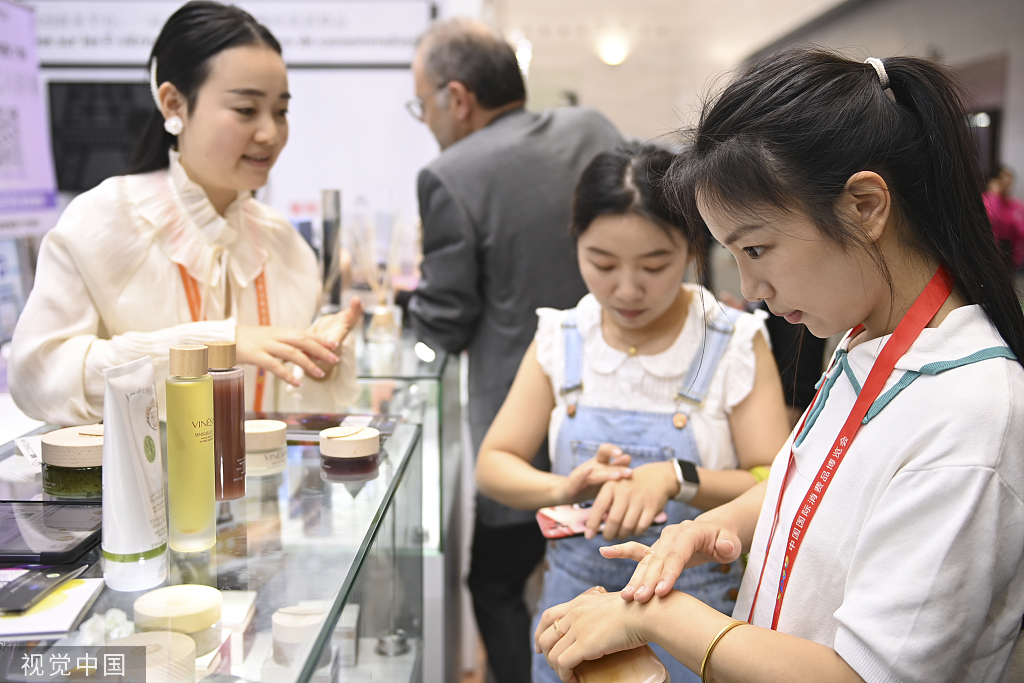
The "she-economy" is unleashing its consumption potential at the third China International Consumer Products Expo, the China Youth Daily reported on Thursday.
For every three lipsticks exported from France, one is bought by Chinese consumer, said Fabrice Megarbane, president of L'Oreal North Asia Zone and CEO of L'Oreal China.
The figure shows the "spending power" of Chinese women and is a microcosm of the "she-economy" in China, said the newspaper.
Some elements of the "she-economy" are displayed at this year's CICPE, including jewelry, makeup and skincare products, as well as fashion shows, which are becoming new impetus to stimulate the consumer market in Hainan province.
The positive policies empowered industries related to the "she-economy", which will create a historic opportunity for these industries' development at the Hainan Free Trade Port, said Xie Jiayang, head of strategy and development department of Greater China at Ernst & Young.
This year, 336 French brands are shown at the CICPE, surging 50 percent from a year ago. These brands included beauty, fashion and art and are attracting many female visitors to the immersive shopping experience at the Champs-Elysees Avenue in the exhibition area.
The cosmetics industry is a gem of China-French economic and trade exchanges, said Fabrice Megarbane. France is the world's largest exporter of cosmetics and China is the largest importer for French cosmetics. The Chinese market has become the second largest market for L'Oreal Group.
Hainan will play an important role in China's high-quality economic development as the country continues to push forward opening-up in 2023, Fabrice Megarbane added.
"The CICPE is a national level commercial exhibition and a major event in the beauty industry, and is also a great opportunity to show our strong confidence and commitment to continue investing in China", said Caroline Andreotti, chief business officer of high-end beauty department at French beauty conglomerate Coty.
The skincare category occupies a high market share in China's beauty market, which provides Coty with great opportunities to continuously develop high-end skincare market. In the future, Coty will fully develop the Chinese skincare market, and it is expected to double the sales of the group's skincare business by the fiscal year of 2025, she added.
Healthcare brands including Heide Apotheke and CATALO brought their new healthcare products focus on female to this year's CICPE as the "she-economy" is becoming a consumption hotspot that businesses are trying to capture at the CICPE.
As China's "she-economy" attraction continues to improve, some international brands are starting to customize products with Chinese characteristics to better meet consumers' habits in the country, said Yu Huanhuan, head of international marketing department at Tmall.
In the recent two years, many female consumers have become particularly fond of healthcare products, and the consumption of these products shows a rapid growth trend, which drives the cross-border e-commerce shift from beauty makeup to healthcare products in a certain extent, Yu said.
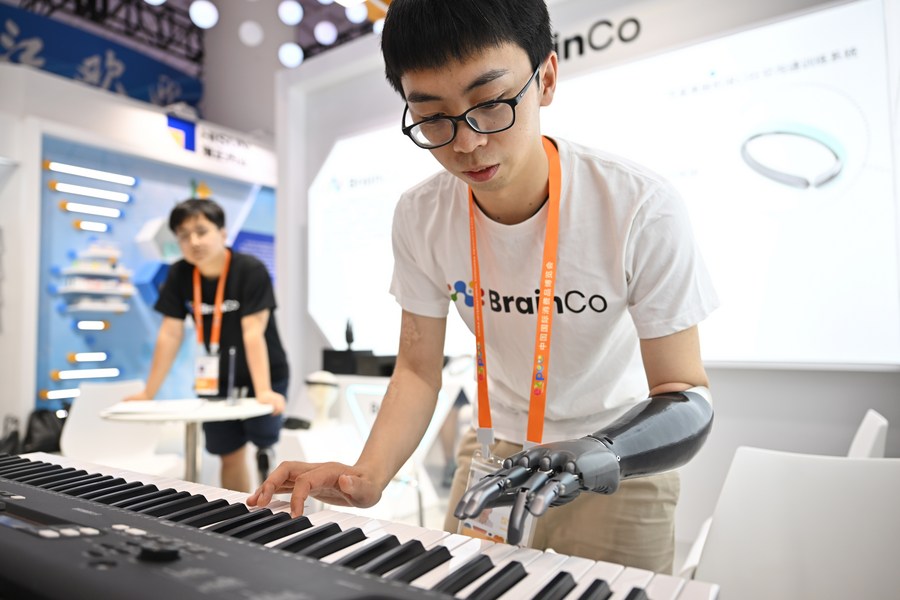
ISTANBUL -- Hosting the third China International Consumer Products Expo with tremendous global participation has proven that China will play a bigger role in the new digital world, a Turkish analyst has said.
"A number of global institutions and governments have revised their growth forecasts for China's economy upwards," Murat Tufan, an analyst with Turkish broadcaster Ekoturk, told Xinhua in a recent interview.
He said that China's economy has been expanding, promising an upbeat outlook and luring influential global companies to explore business opportunities with their Chinese peers.
"Within the framework of this optimistic picture, we see many influential global brands in different sectors, including household goods, fashion, designs, and automotive, in this expo," he noted.
The third CICPE kicked off Monday in Southern China's island province of Hainan, displaying over 3,300 high-quality brands from 65 countries and regions under the theme of "Share Open Opportunities, Co-create a Better Life."
Tufan believes that high-quality technological tools, widespread e-commerce activities, and sustainable and environmentally friendly products would dominate the new world, creating new digital modern individuals.
"The subject that we will discuss the most in the new period will be the production of more sustainable products that cause less damage to nature, the environment, and people, altering old consumption patterns," he said.
According to Tufan, the expo will help design brands and products with newer-generation tools for modern individuals while reducing the dependency on petrol.
The expo has an exhibition area of 120,000 square meters this year, up 20 percent from the previous edition.
The expert said that the showcased products in the expo "symbolize a transformation of brands to meet the needs of the new individuals, the so-called digital people."
"Therefore, this fair is significant in this sense, and I characterize it as a step towards a more sustainable world ... where China will become a bigger global player with digitalization," said Tufan.
He noted that China has robust technology with strong production capability and know-how. "This expo proved that big international brands want to continue their cooperation with China."
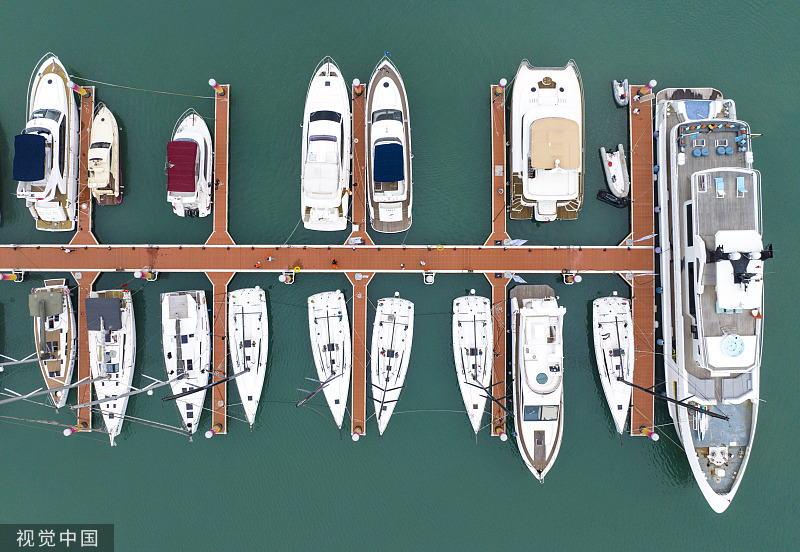
Diversified consumer products shine at the third China International Consumer Products Expo in Haikou, Hainan province.
From Yachts, 3D printers and drones to diamonds, liquor and artwork, visitors can be wowed by the products they are able to see at the expo.
Children can also learn about how a toy is printed and experience self-matched ice cream.
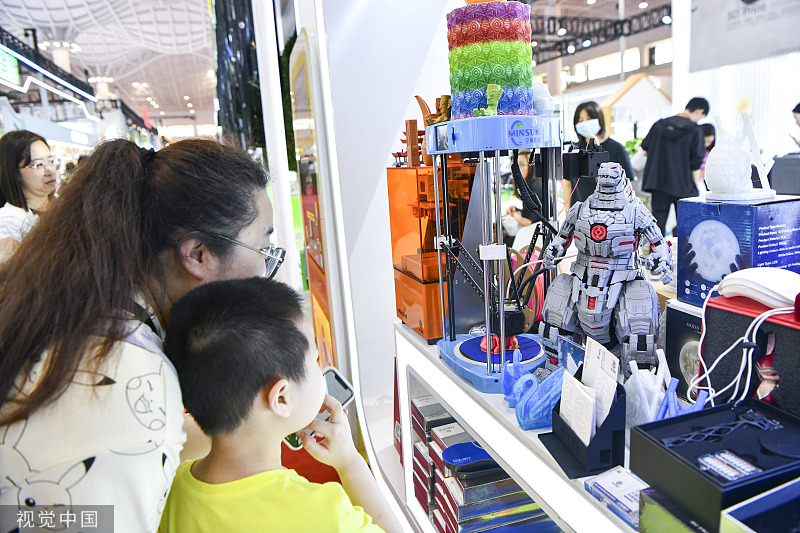
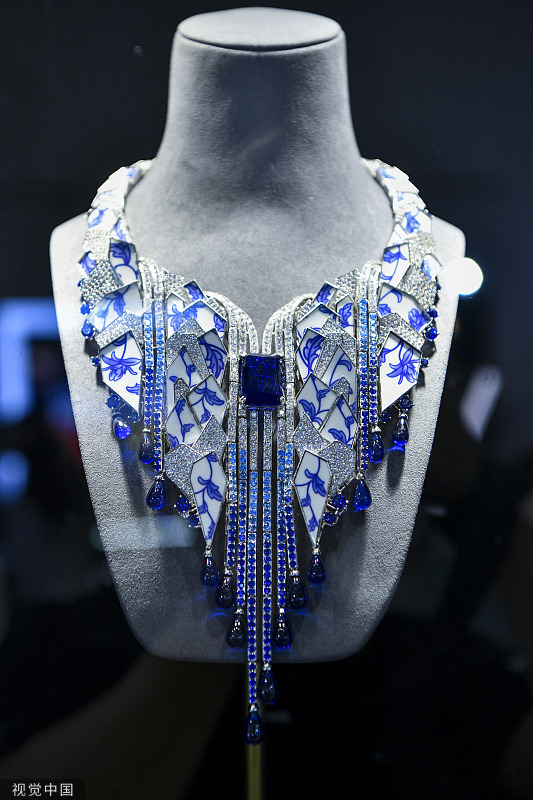
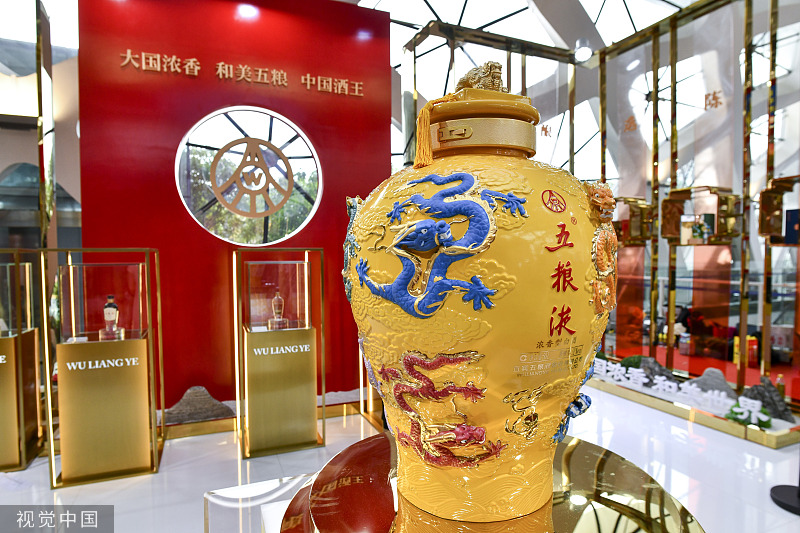
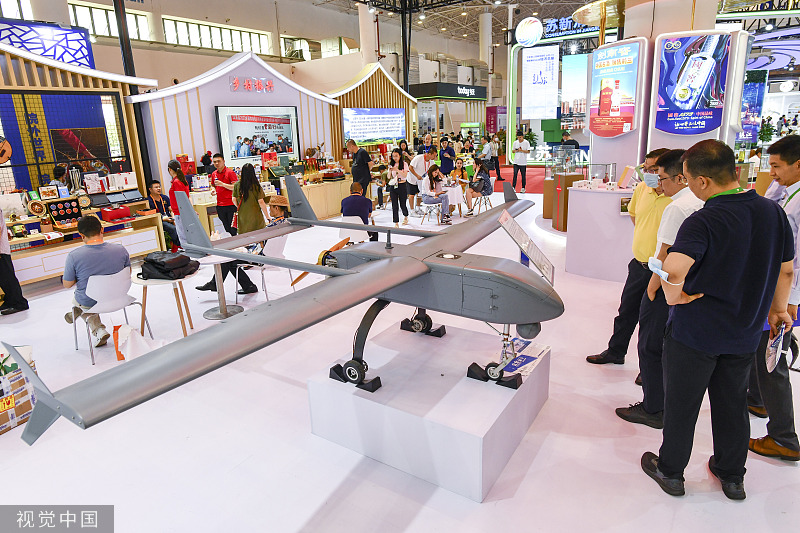
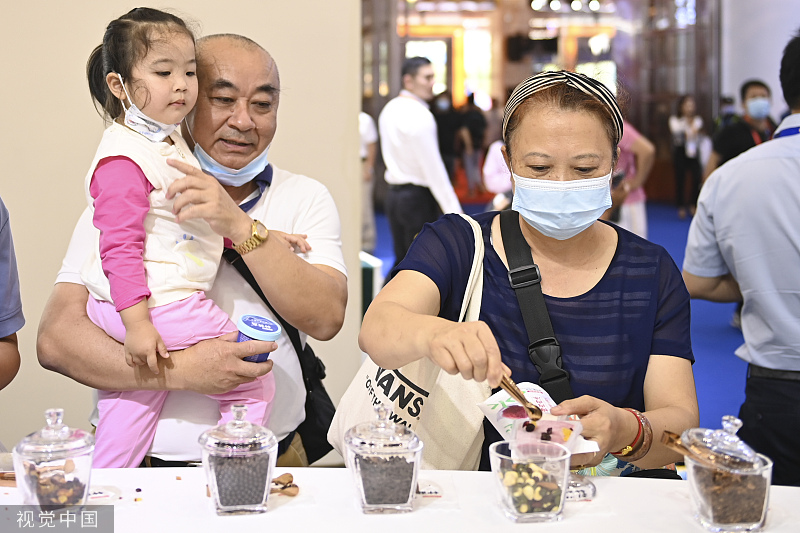
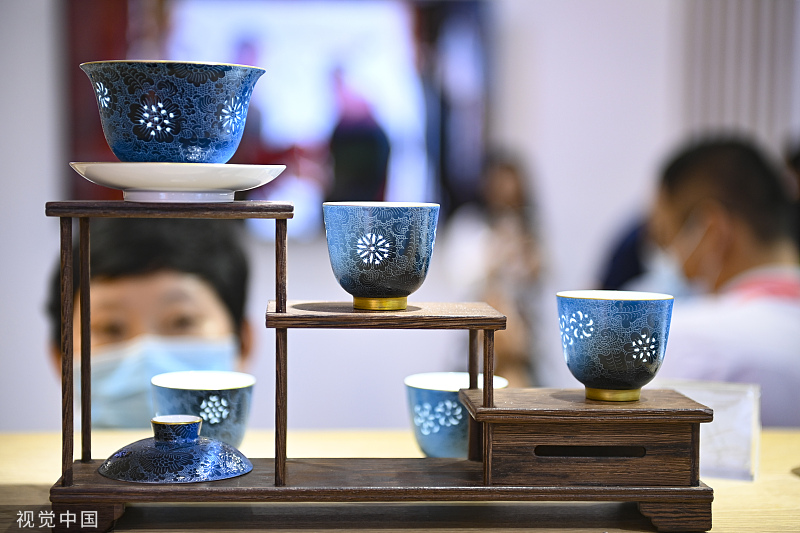
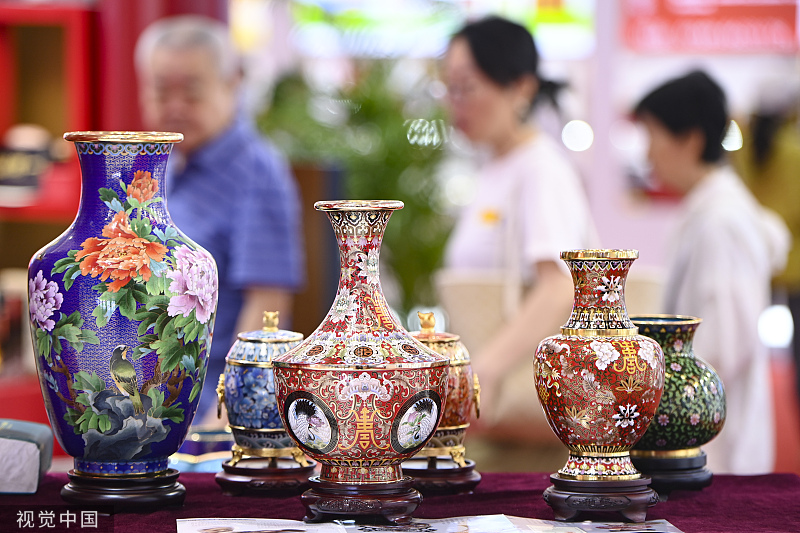
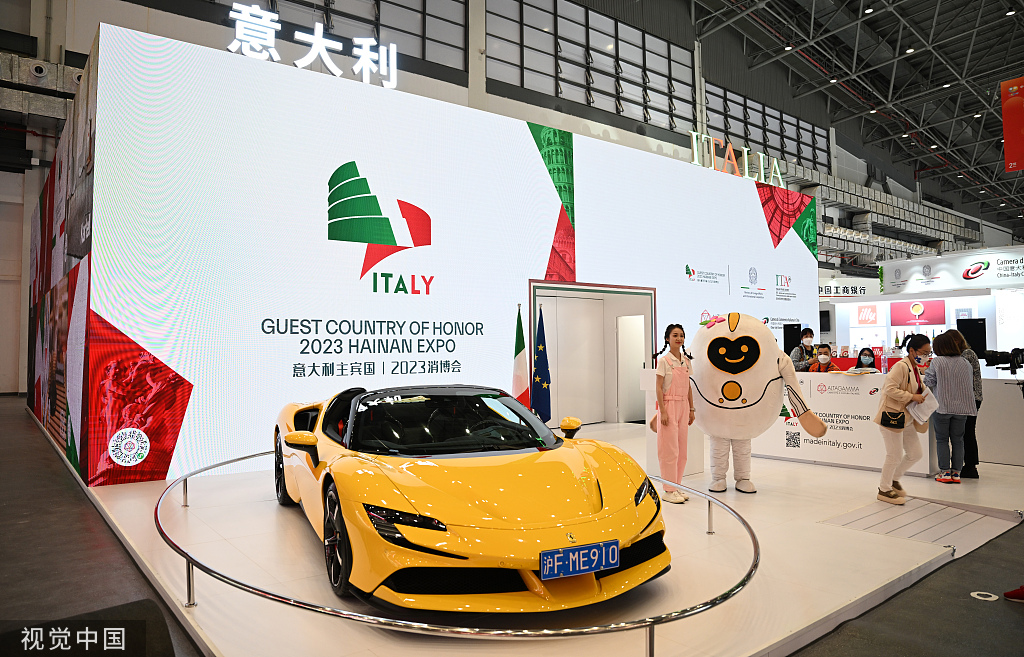
HAIKOU -- Paolo Bazzoni, chairman of the China-Italy Chamber of Commerce, said the Chinese market is full of opportunities and expected Italian companies to tap further into the world's second-largest consumer market.
More Italian companies will approach the Chinese market if favorable circumstances remain, Bazzoni said in an exclusive interview with Xinhua during the third China International Consumer Products Expo.
China-Italy relations have been notably strengthened in recent years. Data showed that bilateral trade volume totaled $77.9 billion in 2022, up 5.4 percent year-on-year.
Bazzoni believed the Chinese economy is bouncing back from COVID impacts and voiced confidence about its prospects. He said the recovery would not happen immediately, but positive signs are emerging.
It's time for a wider-base recovery, and areas including infrastructure and consumption will gradually revive, he added.
Maria Tripodi, Italian undersecretary of state to the Ministry of Foreign Affairs and International Cooperation, noted at the opening ceremony of the third CICPE that the extensive participation of Italian enterprises in the expo demonstrates their emphasis on the Chinese market and promise to provide high-quality goods.
Echoing Tripodi's remarks, Bazzoni also highlighted the appeal of China's ultra-large market among Italian enterprises, saying that the chamber has been expanding rapidly over the past few years.
As of the end of 2022, the chamber has 868 members, a surge of 98.6 percent from 2019, while the number of its offices across China has increased to seven, according to the CICC.
Expressing excitement about the third CICPE, the first large-scale international expo after China optimized its COVID response, Bazzoni said it would be a good showcase for Italian brands and companies, as media and consumers will look carefully at the exhibition.
Italy is the guest country of honor in this year's expo. It has built its pavilion in about 1,800 square meters and has 147 brands participating in the expo -- both figures more than double that of last year's edition.
Italian businesses will have more opportunities to penetrate and get more business from the Chinese market, Bazzoni said.
Looking beyond the ongoing expo, the chairman said many areas harbor massive growth potential for Italian enterprises.
Apart from what is on display, Italy can offer Chinese customers quality products in sectors such as machinery, renewable energy, and healthcare, he said.
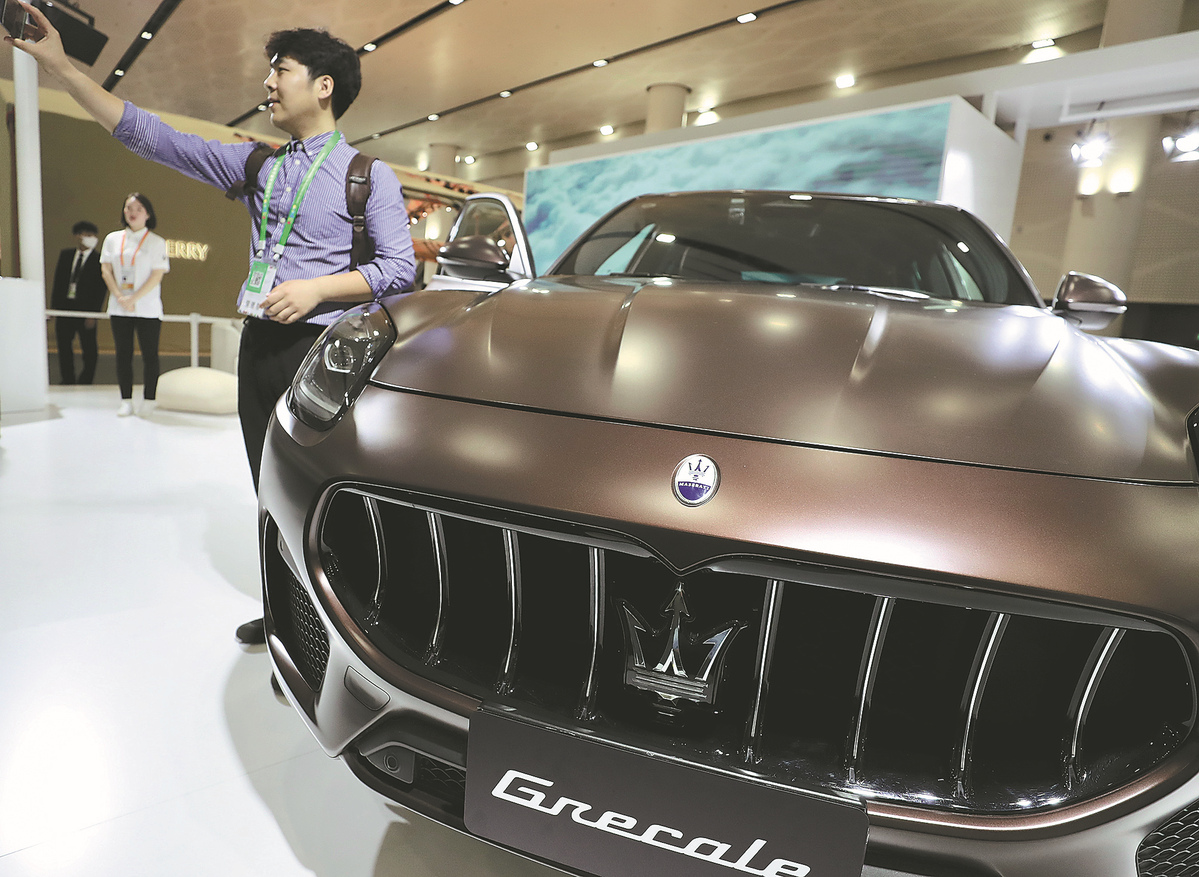
Major Italian companies said since they strongly believe that China will continue to be a critical growth engine and global innovation hub, they will continue to increase investments in the country's massive market.
Top executives of Italian companies made the remarks at the ongoing Third China International Consumer Products Expo in Haikou, capital of Hainan province. The expo will close on Saturday.
Italian luxury carmaker Maserati said it has recognized the pioneering role of Hainan in boosting consumption across China and the world. As the first Italian luxury carmaker to produce full electric vehicles, Maserati said by 2025, all of its models will come in a full-electric version, and the entire Maserati range will run on electricity alone by 2030.
Hainan is also playing a leading role in the transformation of China's automotive industry. In August last year, guided by the provincial government, Hainan became the first province in China to set a phase-out date for pure internal combustion engine vehicles. This, Maserati said, is a revolutionary response to the burgeoning electrification trend.
"The expo has truly become a celebration of global consumption, demonstrating China's willingness to share its market opportunities with the world and contribute to global economic recovery," said Mirko Bordiga, managing director of Maserati Greater China.
Italy, as the guest country of honor this year, has 147 of its brands participating in the expo. The number is more than double last year's figure.
Paolo Bazzoni, chairman of the China-Italy Chamber of Commerce, said China is of great importance to Italian enterprises, and participating in the expo creates more business opportunities for Italian brands to enter the China market and expand their business.
Rhea Vendors Group, an Italian high-end coffee machine maker and a first-time participant in the expo, said it has seen emerging business opportunities at the event and plans to participate again next year.
As a business-to-business provider, the company entered China in early 2020. It mainly provides coffee machines to chain coffee shops, restaurants, office buildings, hotels and airports in first- and second-tier Chinese cities. The company's products accept digital renminbi payments when they serve as vending machines.
Next, Rhea plans to further expand into more cities, cooperate with more Chinese partners and launch more tailor-made products.
"In the first quarter of this year, we have seen a strong rebound in demand after China optimized its COVID-19 response measures. During the three-month period, our sales surged more than 200 percent compared with the whole of last year," said Alfred Xu, general manager of Rhea Vendors China Co Ltd, the local subsidiary.
"There is still huge market potential to tap in China and coffee consumption volume in the country is growing continuously. Chinese consumers are increasingly seeking premium coffee drinks."
Meanwhile, the Ministry of Commerce released a new report at the expo that said given the strong resilience, great potential and abundant vitality of China's consumer market, its long-term fundamentals remain unchanged.
"With the implementation and effectiveness of various policies and measures to expand domestic demand and consumption, the consumer market in China will continue to show a trend of recovery and growth this year, and the fundamental role of consumption in driving economic development will become more prominent," said Xu Xingfeng, director of the consumption promotion bureau at the ministry.
As China's economy recovers, Chinese consumers grow more willing to spend. Retail sales for consumer goods went up in Jan-Feb this year and sales revenue of consumption-related industries rose 12.2 percent year-on-year during the 2023 Spring Festival.
These figures indicate a good start for the consumer economy in 2023, and a greater share of consumption in economic growth.
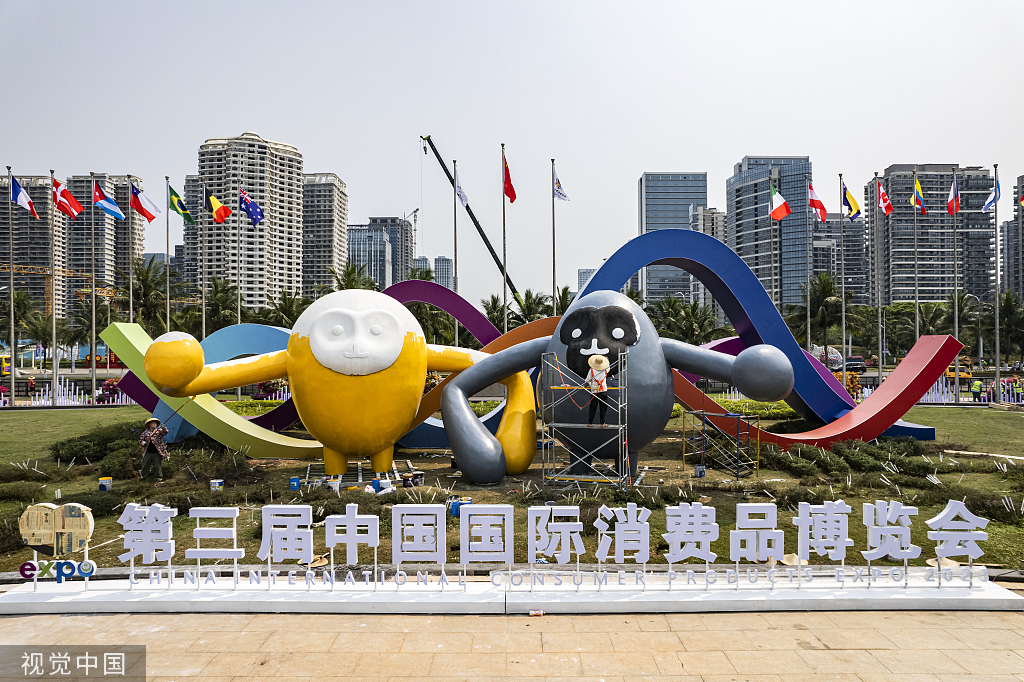
As a medium linking China to the world, the spillover effect of China International Consumer Products Expo continues to grow, Economic Information Daily reported on April 12, the third day of the ongoing CICPE in Hainan province.
More global investors are swarming to Hainan, seeking to deepen their cooperation with Hainan Free Trade Port, including Singaporean Wilmar International, Capitaland and Changi Airport Group, according the Hainan Provincial Bureau of International Economic Development.
The spillover effect of the expo is also reflected in the fruitful results of various match-making activities during the exhibition. For example, a total of 28 key projects with a contract amount of nearly 30 billion yuan ($4.36 billion) were signed during investment attracting day held by the delegation from Hubei province on the first day of the expo.
Gao Lingyun, researcher at the Institute of World Economics and Politics of Chinese Academy of Social Sciences, said that with further development of exhibitions and exchange activities such as the CICPE, more and more multinational enterprises will enter and settle down in the Chinese market.
The vitality and appeal of China's grand market are expected to be further unleashed. Chi Fulin, head of Hainan-based China Institute for Reform and Development, said that upgrade in consumption structure among Chinese residents is a basic trend. Service oriented consumption is expected to reach or exceed 50 percent in 2025 and around 55 percent in 2030, "consumption structure upgrade among 1.4 billion people bears huge consumption potential."
Gao said, China will resolutely deepen the reform and expend the opening-up, and will constantly enhance the impetus and vitality for social economic development, which will provide more market opportunities for enterprises from home and abroad, and more power for world economy recovery.
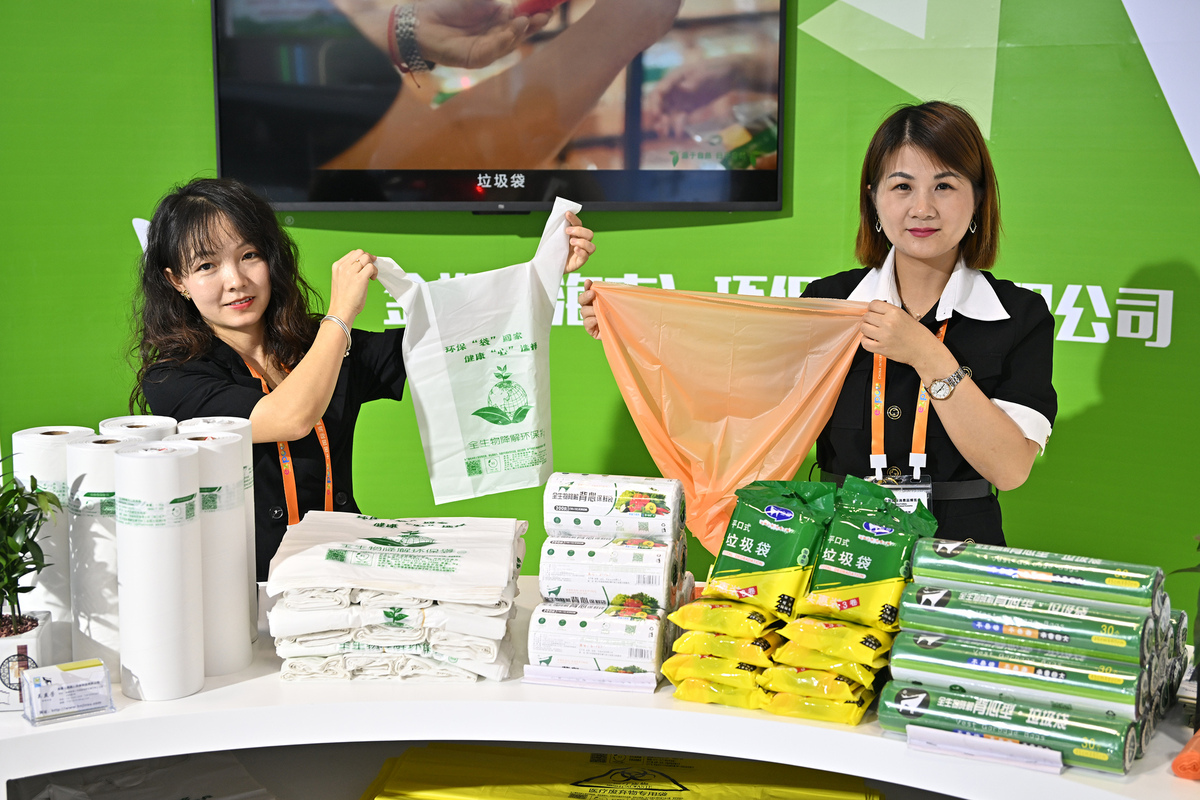
Green, high-tech products shine at the ongoing China International Consumer Products Expo, which lasts from April 10 to 15 in Haikou, Hainan province. The concept of carbon reduction and sustainable development has been integrated into all aspects of the exhibition, including hall construction, catering, travel, data management, etc.
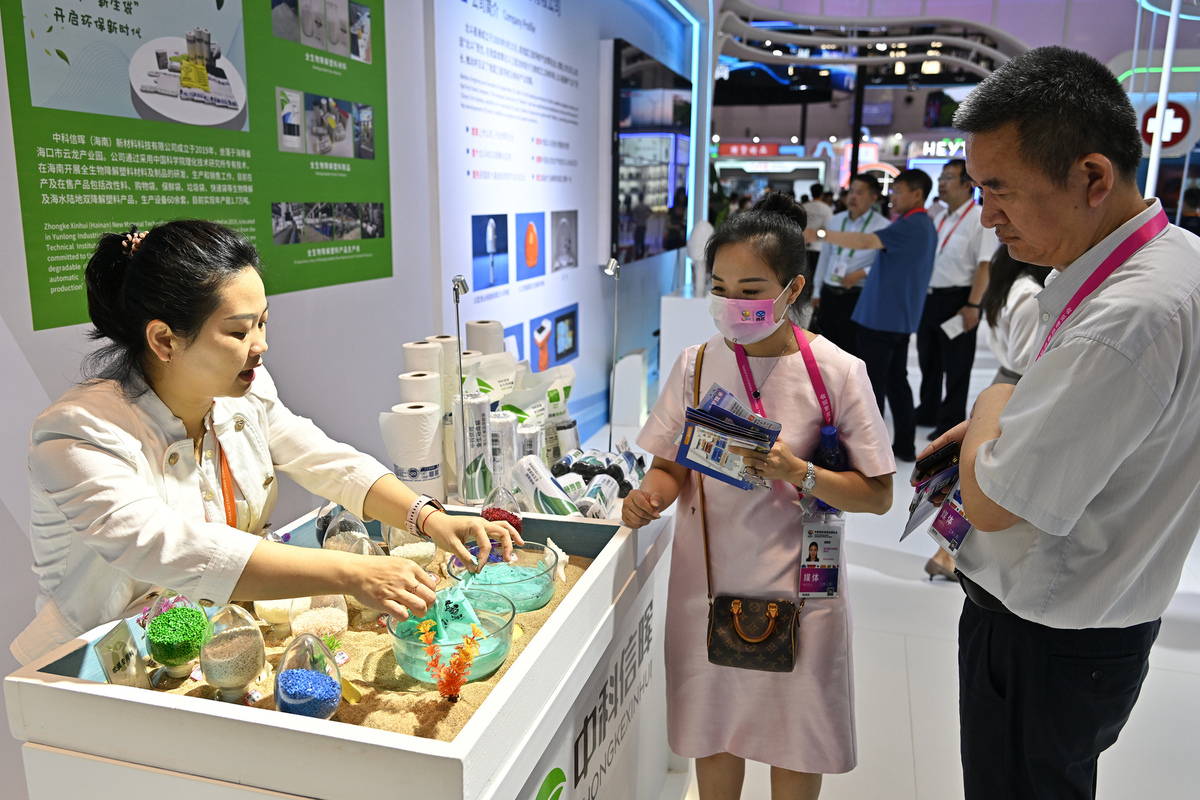
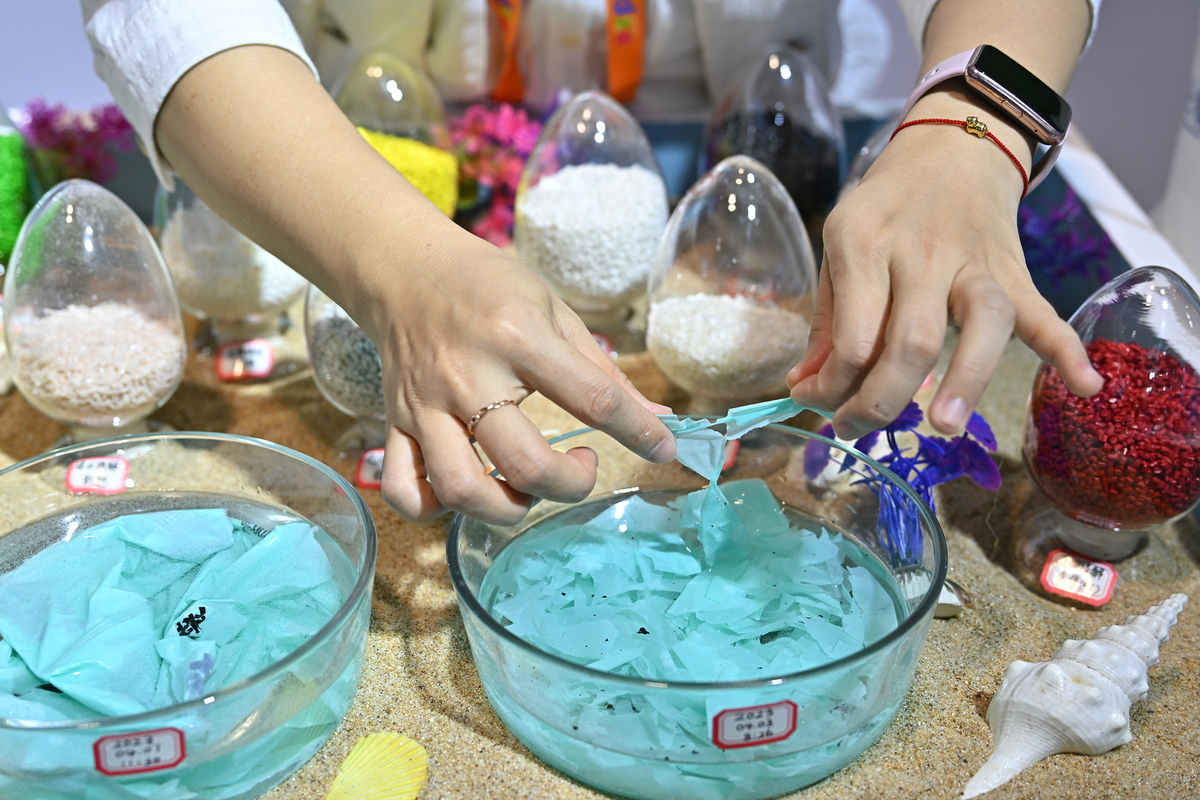
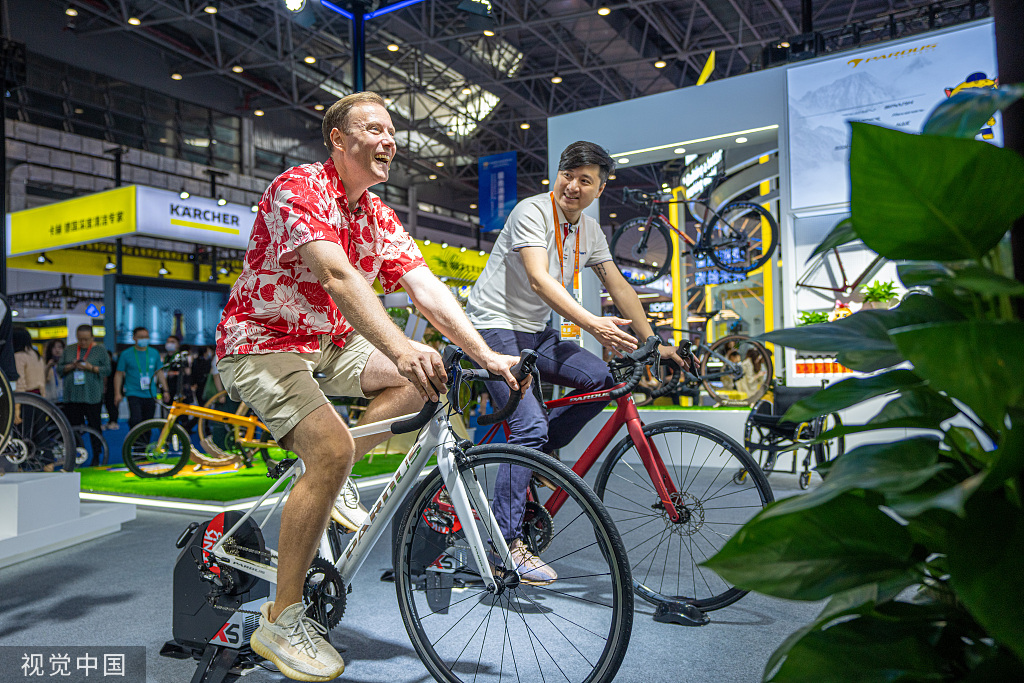
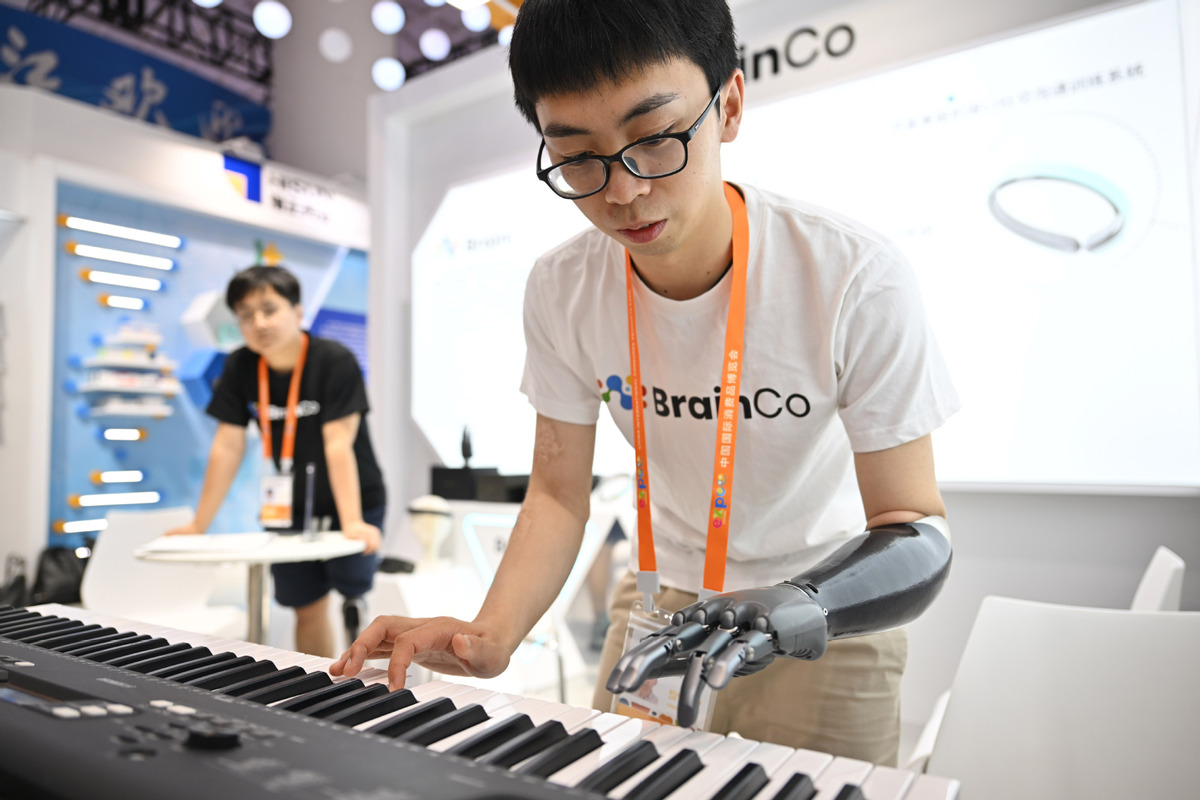
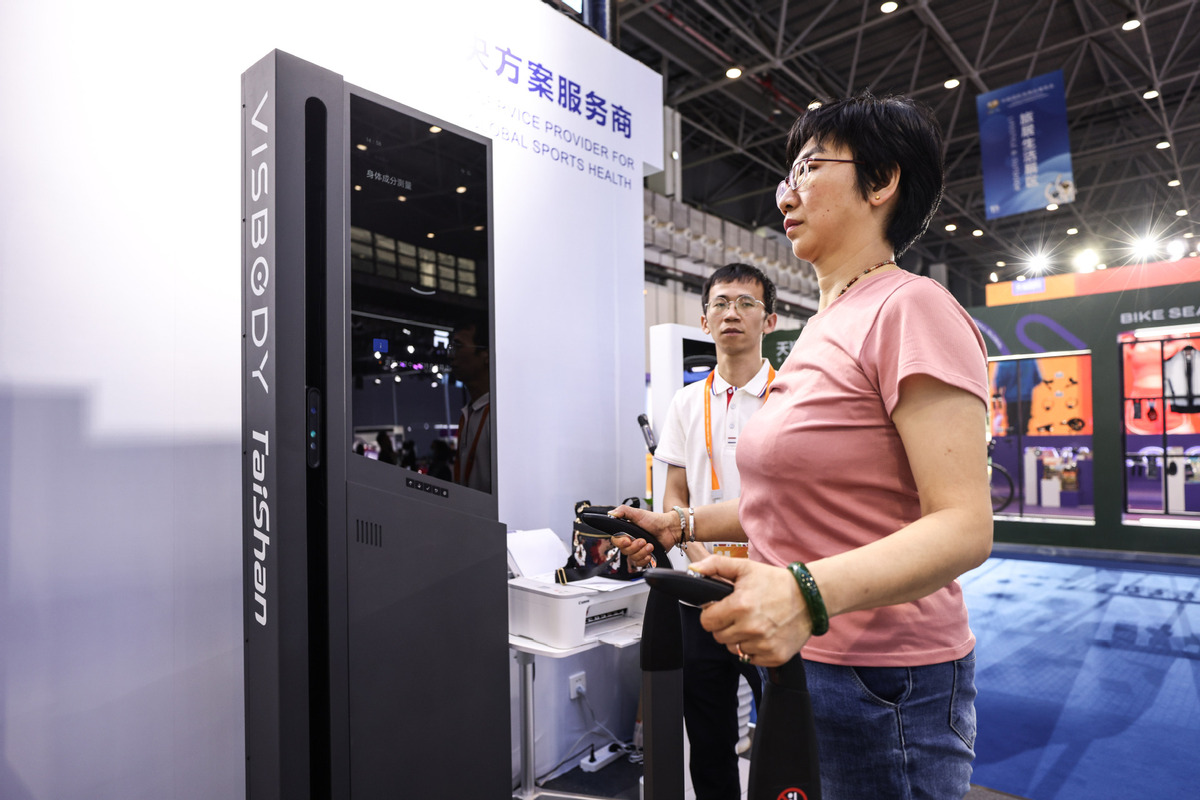
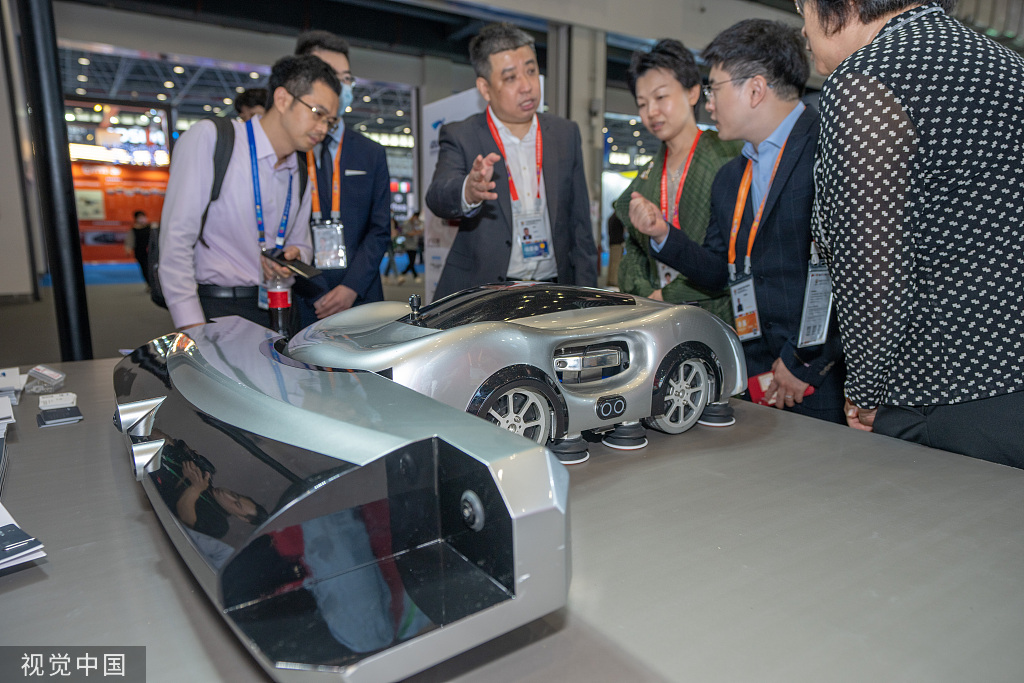
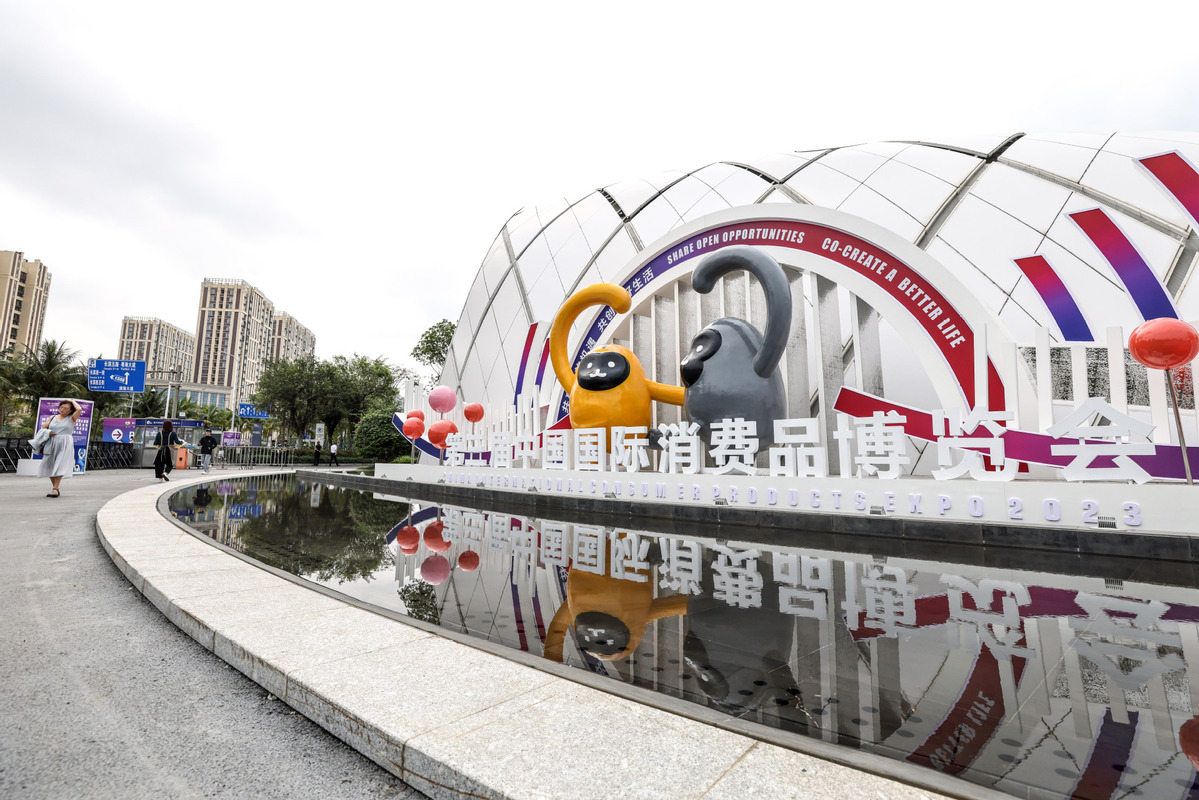
The 2023 China International Consumer Products Expo kicked off in Haikou, South China's Hainan province on Monday, with more than 3,300 products from 65 countries and regions on display at the six-day event.
Chinese luxury fashion brand GRACE CHEN showcased over 50 sets of work from their "The Splendor of Chinese Literature" collection at the opening show.
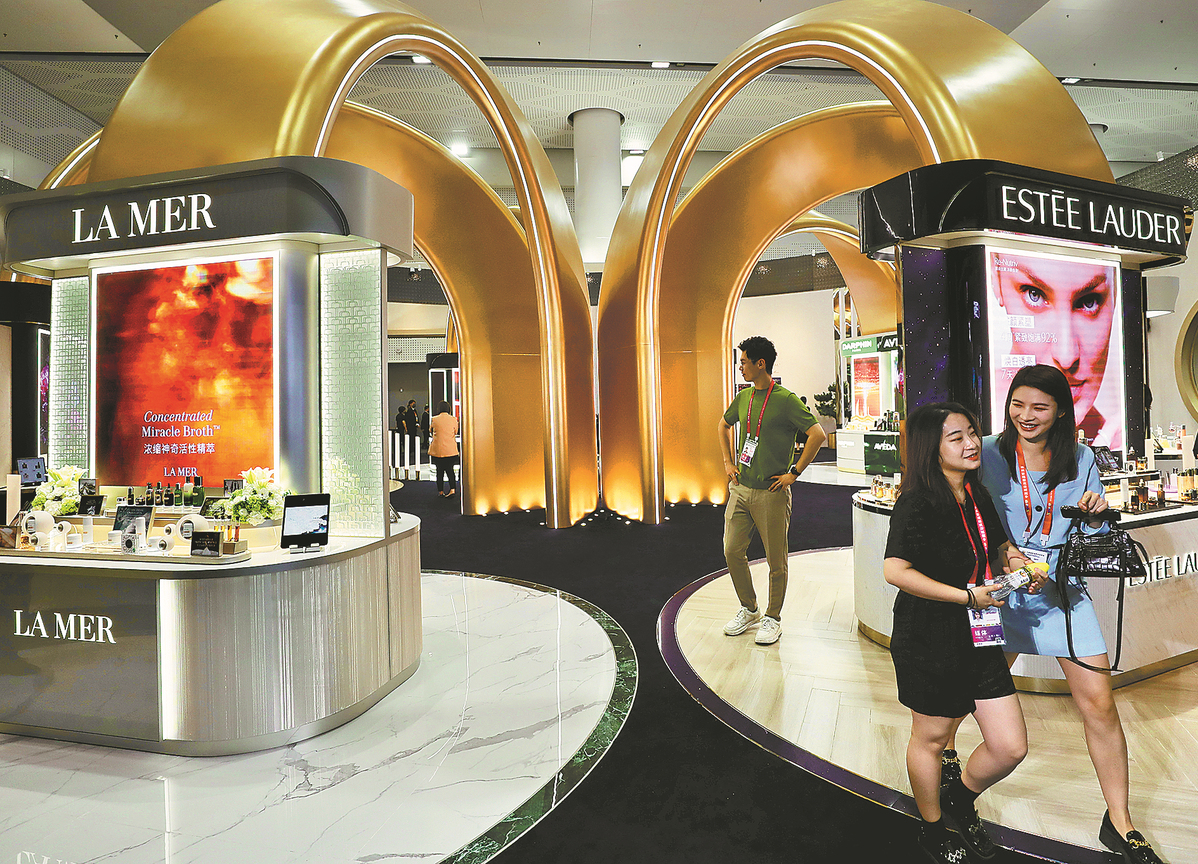
Encouraged by the huge potential of the China market, major foreign luxury and consumer products companies said they will continue to increase investments in the Hainan Free Trade Port, which, in turn, will help further develop international brands.
Such companies' top executives made the remarks during the ongoing Third China International Consumer Products Expo in Haikou, capital of the southern island province of Hainan.
They said they have witnessed the expansion of China's consumption market in recent times and hence are confident that data-backed growth predictions will come to pass as expected.
Last year, China imported consumer goods worth 1.93 trillion yuan ($280 billion), accounting for 11 percent of the total import value. Chinese consumers have shown a strong demand for high-quality products, and they prefer fashionable and green products, said the Ministry of Commerce.
"In the past three years, the expo has witnessed the resilience and significant growth potential of China's consumer market. Despite the challenges brought by the COVID-19 pandemic, China remains the world's second-largest consumer market, and new types and new formats of consumption have emerged continuously," Sheng Qiuping, vice-minister of commerce, told the expo via video link.
British luxury brand Burberry, a three-time participant at the expo, said Chinese consumers are passionate about fashion, and they are digitally savvy and more eco-conscious than ever before. In the first half of next year, its first boutique store in Hainan will open in Haikou.
"We have full confidence in the strong resilience and long-term fundamentals of the Chinese economy and look forward to its future growth. We have seen a rapid recovery in consumer confidence, reflecting the strength of China's consumer and retail industry," said Josie Zhang, president of Burberry China.
The duty-free market in Hainan has added a new dimension to the global tourism retail industry, with many on-site retailers innovating their businesses and shopping experiences for consumers, said the latest Hainan travel retail market white paper by KPMG China and Moodie Davitt Report that was released during the expo.
In the first quarter of this year, China Duty Free Group saw both the number of visitors it received and duty-free sales revenue exceed the pre-pandemic level of the same period in 2019.
Meanwhile, US luxury fashion company Tapestry, the parent of Coach, Stuart Weitzman and Kate Spade brands, and a three-time participant at the expo, said it has established its travel retail headquarters for the China market in Hainan.
"We will continue to explore digital transformation and strengthen our social media marketing efforts in China, as online sales have become increasingly important in the Chinese mainland for luxury consumption," said Janet Zhong, vice-president of Tapestry and Coach in the Asia-Pacific.
In the next 10 years, sales of China's fashion consumption market are expected to grow steadily, driven mainly by Chinese consumers' pursuit of more and more premium products with additional features rather than larger volumes, according to a forecast made by Boston Consulting Group during the expo.
US skincare group Estee Lauder said the company has confidence in the China market and has realized the importance of the duty-free shopping market in Hainan. It said it will seek more cooperation with Chinese partners, introduce new top-quality products in Hainan and contribute to the growth of Hainan FTP.
